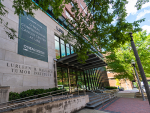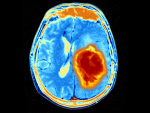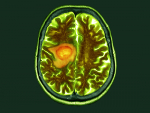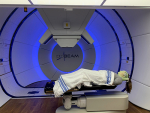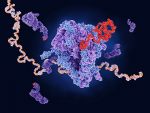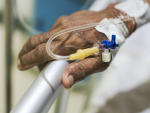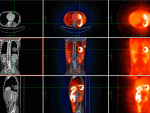Displaying items by tag: oneal comprehensive cancer center
The 14th annual Fiesta Ball, now happening for an entire week July 17-24, will have an online auction and participation from five local Mexican and Tex-Mex restaurants.
Tagged under
In honor of National Cancer Survivors Day, O’Neal Cancer Center patient Charlotte Patterson reflects on her own cancer diagnosis and treatment.
Tagged under
The COVID-19 pandemic has interrupted delivery of key health services for children and adolescents, including HPV vaccination for cancer prevention.
Tagged under
O’Neal Comprehensive Cancer Center at UAB is among three groups selected nationwide for the Co-Creating Solutions to Address Racism and Disparities in Oncology initiative coordinated by the Center for Health Care Strategies.
Tagged under
G207, an immunotherapy derived from a modified herpes virus is well tolerated in children with gliomas, and shows signs of clinical effectiveness
Tagged under
Scarinci’s Cervical Cancer Elimination project aims to eliminate cervical cancer as a public health problem in Sri Lanka.
Tagged under
This digital solution will help doctors offer patients timely genetic testing for hereditary cancer, greater clinical support and counseling, coupled with shorter wait times and more counselors to expand into other clinical areas when needed.
The O’Neal Comprehensive Cancer Center at UAB joins with the GO2 Foundation for Lung Cancer in the STRIDES study, to address the need for increased African American participation in lung cancer clinical trials.
Tagged under
The study points to an adhesive cell surface protein that might be a key element in tackling the resistance to radiation therapy commonly seen in glioblastoma tumors.
Tagged under
Proton International at UAB reached significant milestones in its first year. More than 5,000 treatments have been performed, with most patients getting 30-35 treatments. Some 142 patients have completed therapy.
Tagged under
American Cancer Society Emergency Lodging grants focus on addressing unmet lodging needs of cancer patients, particularly vulnerable populations experiencing an unequal burden of cancer.
Tagged under
The list was made by a group that aspires to bolster and increase diversity across all scientific fields, promote retention through the “leaky academic pipeline,” and broaden academic and industrial awareness of diversity and inclusion.
Tagged under
- release
- neuroscience
- school of medicine
- school of public health
- college of arts and sciences
- department of chemistry
- department of neurology
- department of medicine
- department of epidemiology
- department of psychology
- department of microbiology
- department of neurobiology
- department of physics
- division of endocrinology diabetes and metabolism
- division of hematology and oncology
- comprehensive neuroscience center
- oneal comprehensive cancer center
Altered epigenetic marks on ribosomal RNAs appear to create a pool of specialized ribosomes that can differentially regulate translation of specific messenger RNA.
Tagged under
The 72-year-old patient was unable to mount her own immune defense against the SARS-CoV-2 virus because of chronic lymphocytic leukemia, which compromises normal immunity and immunoglobulin production.
Tagged under
If these hollow capsules are modified to target a solid tumor, PET imaging and therapeutic ultrasound can be used to rupture them and release an anticancer drug at ground zero.
Tagged under
A UAB professor continues breast cancer prevention research with additional funding through the National Institutes of Health.
Tagged under
The O’Neal Comprehensive Cancer Center at UAB will hold its 36th annual and first-ever virtual ArtBLINK Gala on Friday, Feb. 5, featuring an online art auction of 20 original pieces from local artists to support cancer research.
Tagged under
Leath, a UAB gynecologic oncologist, professor of medicine and senior scientist, has been named new chair of the Division.
Tagged under
This specialized office at the O’Neal Cancer Center marks its silver anniversary with renewed commitment to reaching the medically underserved and tackling cancer health disparities in the state and surrounding areas.
Tagged under
A positive attitude and UAB’s gynecologic oncology team helped Debby Davis fight and endure life-threatening ovarian cancer.
Tagged under


